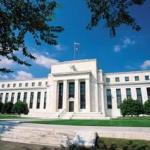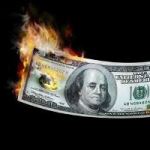
This made President Donald Trump grumpy. He wants Powell to cut interest rates. He wants lower borrowing costs to help cushion the fallout from his trade tariff policies. In advance of the FOMC meeting, Trump even called Powell mean names on Truth Social:
“There can be a SLOWING of the economy unless Mr. Too Late [Powell], a major loser, lowers interest rates, NOW.”
Lower interest rates would help Treasury Secretary Scott Bessent cover the $1.07 trillion in government debt that must be borrowed between April and September. Lower interest rates would also promote a weaker dollar, which would make American made goods more competitive in export markets. This would be consistent with Trump’s objective to bolster American manufacturing. Continue reading







